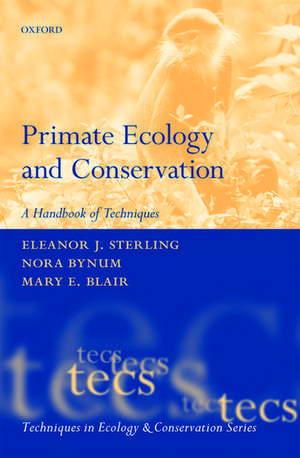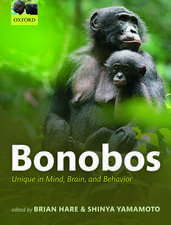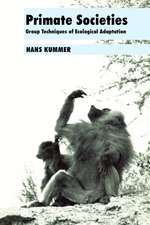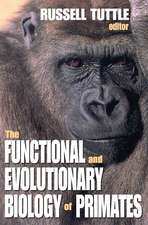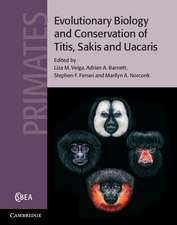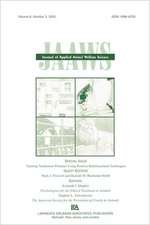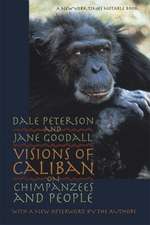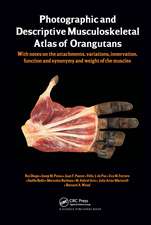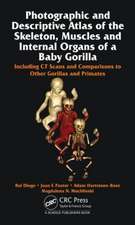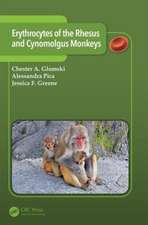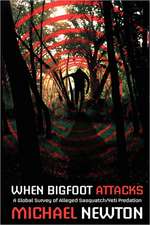Primate Ecology and Conservation
Editat de Eleanor Sterling, Nora Bynum, Mary Blairen Limba Engleză Paperback – 4 apr 2013
Preț: 416.43 lei
Preț vechi: 509.72 lei
-18% Nou
Puncte Express: 625
Preț estimativ în valută:
79.69€ • 82.89$ • 65.79£
79.69€ • 82.89$ • 65.79£
Carte tipărită la comandă
Livrare economică 01-07 aprilie
Preluare comenzi: 021 569.72.76
Specificații
ISBN-13: 9780199659456
ISBN-10: 0199659451
Pagini: 442
Dimensiuni: 163 x 236 x 25 mm
Greutate: 0.67 kg
Editura: Oxford University Press
Colecția OUP Oxford
Locul publicării:Oxford, United Kingdom
ISBN-10: 0199659451
Pagini: 442
Dimensiuni: 163 x 236 x 25 mm
Greutate: 0.67 kg
Editura: Oxford University Press
Colecția OUP Oxford
Locul publicării:Oxford, United Kingdom
Recenzii
In sum, this is an excellent book for graduate students, young researchers, and more established practitioners, in providing an exceptional range of ecological and conservation methods and techniques under a single cover. Going forward it will be a required reading for each of my graduate students as they start to contemplate their own research projects, and a volume that I will donate to collaborators in developing countries
a comprehensive resource ... a valuable empirical reference text for conservation practitioners.
this is a great book, packed with information, full of technical details but still accessible to nonexperts on a specific discipline or technique ... I believe this book will soon become a must in any University library ... it is an excellent read for students, scientists and practitioners involved with animal management and conservation.
There is a huge corpus of knowledge condensed here, that will enable anyone wishing to develop research on primates in the wild to see what is now possible, and the types of questions that can be addressed.
the content provides a good overview to the numerous topics related to the study of primate ecology and conservation. ... the book will be very useful as a quick key reference to field project managers, students, and project supervisors wishing to plan and/or teach methodological aspects of primate ecology and conservation research.
a comprehensive resource ... a valuable empirical reference text for conservation practitioners.
this is a great book, packed with information, full of technical details but still accessible to nonexperts on a specific discipline or technique ... I believe this book will soon become a must in any University library ... it is an excellent read for students, scientists and practitioners involved with animal management and conservation.
There is a huge corpus of knowledge condensed here, that will enable anyone wishing to develop research on primates in the wild to see what is now possible, and the types of questions that can be addressed.
the content provides a good overview to the numerous topics related to the study of primate ecology and conservation. ... the book will be very useful as a quick key reference to field project managers, students, and project supervisors wishing to plan and/or teach methodological aspects of primate ecology and conservation research.
Notă biografică
Eleanor J. Sterling, Ph.D., is the Director of the American Museum of Natural History's Center for Biodiversity and Conservation (CBC). She studies the distribution patterns of biodiversity in tropical regions of the world and has more than 25 years of field research experience in Africa, Asia, and Latin America, where she has conducted surveys and censuses, as well as behavioral and ecological studies of primates, whales, and other mammals. Dr Sterling has served as an Adjunct Professor at Columbia University since 1997, and as the Director of Graduate Studies for the Department of Ecology, Evolution, and Environmental Biology from 2002-2012. She sat on the Board of Governors of the Society for Conservation Biology from 2001-2010 and was the Chair of the Society's Education Committee from 2005-2010. She received her B.A. from Yale College in 1983 and her M. Phil and Ph.D. in Anthropology and Forestry and Environmental Studies from Yale University in 1993.Nora Bynum, Ph.D., is the Associate Vice Provost of Global Strategy and Programs at Duke University. For the past 15 years, Nora has worked in international capacity building and training in the Americas, Asia, and Africa, while continuing to conduct research on primates in Indonesia and Mexico, and research on phenology, seasonality and climate change in tropical forests of Costa Rica. Nora is also an Adjunct Professor at Duke University, where she has taught since 1995. She serves as Chair of the Board of the Amazon Center for Environmental Education and Research (ACEER) and as Chair of the Education Committee for the Board of Governors of the Society for Conservation Biology. She received her Ph.D. from Yale University in Anthropology and Forestry and Environmental Studies, and her undergraduate degree in Anthropology from Duke University.Mary E. Blair, Ph.D., is a Biodiversity Scientist at the Center for Biodiversity and Conservation at the American Museum of Natural History. Her current research integrates molecular techniques with geographic information systems (GIS) modeling to understand the behavioral, ecological, and evolutionary responses of primates to environmental change. She completed her Ph.D. in Evolutionary Primatology at Columbia University, where her dissertation research focused on how habitat fragmentation affects dispersal and the distribution of genetic variation among populations of the endangered Central American Squirrel Monkey in Costa Rica. She was an American Association of University Women (AAUW) Dissertation Writing Fellow and received her B.A. in Biology and Anthropology from Swarthmore College.
